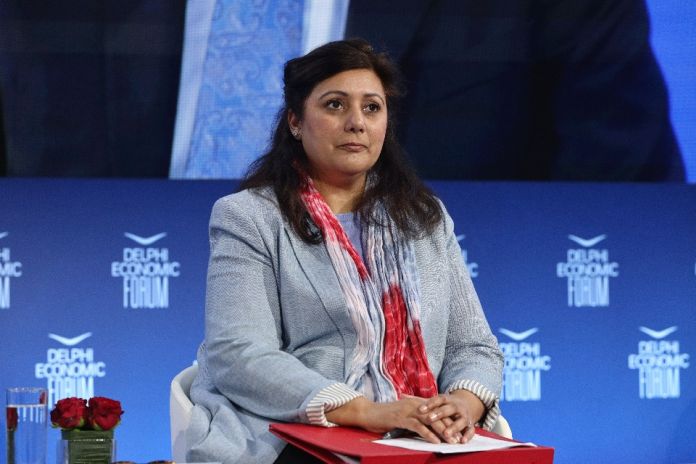- Minister for Europe Nusrat Ghani’s speech at the Delphi Economic Forum on Ukraine’s reconstruction, 11 April 2024.
By Nusrat Ghani
Over two years ago, when the first tanks thundered towards Kyiv, Putin would have felt invincible. But events since have shown how foolish he was. Foolish enough to underestimate Ukraine’s bravery. Foolish enough to think his military’s incompetence would go unnoticed. And foolish enough to doubt the West’s resolve to stand so firmly behind Ukraine.
The twisted lies Putin spreads to justify the invasion and mask his failures cannot hide a simple truth. He believes he can take territories and re-draw borders, when he wants, where he wants… and he believes he can get away with it every single time.
Well, not this time.
Ukraine must win. Why? Because our collective security is at stake. A defeat will invite more aggression. A victory will deter it.
The question is not whether we have the ability to achieve this – Ukraine has shown it can defend itself. The question is whether we have the will to see it through.
By defending Ukraine, we defend the values in the UN charter we all subscribe to. The values which have allowed us to prosper. Respect for sovereignty is not just about maintaining lines on a map. It is about having the freedom to choose how we want to live. All countries have that right – and Ukraine is fighting to uphold that right for all of us.
The UK was privileged to play its part in welcoming Ukrainians forced from their homes. But they have a right to return and we collectively have an obligation to enable them to do so.
Putin wants them out because that is how he can destroy, displace and devalue Ukrainian identity and culture.
We cannot hand him what he craves.
We must also honour the legacy of Navalny and his unwavering commitment to Russian democracy. I applaud Yulia’s courage and resilience. Her foundation will continue Navalny’s fight, and that remains the best tribute to his enduring vision.
So, how can we restore freedom, prosperity and democracy in Ukraine?
I would like to highlight the three key ways in which the UK is helping to rebuild its economy.
First, by committing financially. Over the last two years, we have provided almost five billion dollars of non-military support.
We are boosting its fiscal firepower. Last month, we worked with the World Bank to speed up and increase the size of loans. As a result, the UK and Japan are providing one and a half billion dollars to help with immediate pressures.
We and our G7 partners have also been clear – Russia must pay for the damage it has caused. We will pursue all routes through which Russian assets can be used to support Ukraine.
Second, by harnessing the power of the private sector. The World Bank judges recovery will require almost half a trillion US dollars.
Daunting as it sounds, it is achievable if we tap into the capital, creativity and expertise of businesses.
The Ukraine Recovery Conference in London last year mobilised international partners, including the private sector, raising a staggering USD 60 billion of support.
We of course have further to go – but it was a clear indication of what we can achieve together.
Last year, I also personally oversaw the creation of a war-risk insurance scheme to protect and encourage UK businesses supporting Ukraine.
Finally, we are helping by stimulating Ukraine’s trading industry. Before the invasion, it was a leading exporter of food, grains, steel and much more. There is no reason why that should not be the case once again.
So, the UK is undertaking a series of trade missions to strengthen long-term cooperation and galvanise investment into Ukraine.
Make no mistake. This is the defining struggle of our generation. The make-or-break moment is this year.
The costs of failing to support Ukraine now will be far greater than the costs of repelling Putin. That is why we must devote our hard-worked resources and precious time to this collective endeavour. There is so much to do and so little time to do it.
I’ll just finish on what president Zelensky put so well:
When asked what will bring the end of the war, we used to say “peace.” Now, we say “victory.”





